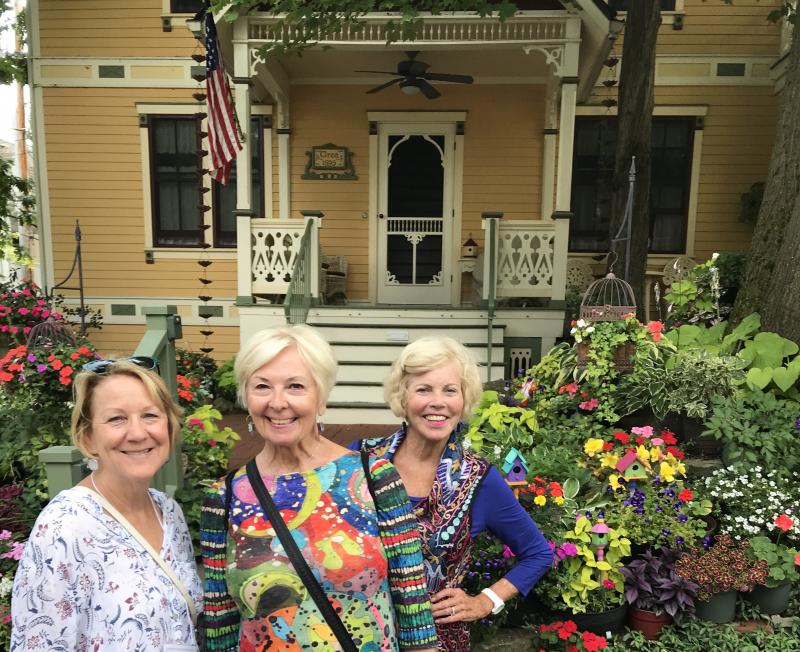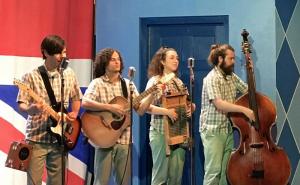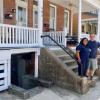Chautauqua: Summer lifelong learning!
For years, I have heard friends talk about the annual summer Chautauqua Institution in upstate New York, speaking in almost reverent tones. Last week I attended week seven: Grace: A Celebration of Extraordinary Gifts. The experience made me feel young at heart, like a college student who gets to choose only electives which look interesting, like English lawn bowling or a new playwright’s journey from conception to production.
Each summer, people from all over the United States and Canada flock to this idyllic lake setting to immerse themselves in a mix of lectures, performing arts, interfaith worship and recreational activities. Attendees can choose one week or stay for all nine! Beginning Aug. 17, week nine’s theme is Exploring Race and Culture in America with Wynton Marsalis and Jazz.
Founded in 1874, Chautauqua began as a two-week, outdoor educational gathering for Sunday school teachers to hear the best speakers on the Bible, science and social issues. Their website explains, “As many as 20,000 people came the first season … it was the right use of leisure time, lifelong learning and self-improvement through healthy recreation, guided study and worship…”
At the end of the fifth season in 1878, co-founder John Vincent announced a year-round correspondence reading program to be called the Chautauqua Literary and Scientific Circle or CLSC. This program is open to all people of any age, sex, religion or race. A symphony orchestra became part of the regular program in 1920, and the opera company was founded in 1929.
While I was there, the class of 1979 was celebrating their 40th reunion, beginning one morning with a parade and procession in front of the amphitheater.
My morning began and ended in the amphitheater. I loved the 9:15 a.m. ecumenical sermon by the Rev. Barbara Lundblad.
Every one of the evening programs was amazing: Paul Taylor Dance Company, Japanese drumming group Taikoza, the Chautauqua Symphony with conductor Rossen Milanov, comedian Brian Regan, and more. During the day, I attended lectures by Krista Tippet hosted by PRX’s “On Being.” One morning, she interviewed Lennon Flowers and Jennifer Bailey, co-founders of The People’s Supper.
What’s that? Two young women began a program in 2017 which uses shared meals to build trust and connection among people of different identities and perspectives. Their website explains it best: “Our work is born of a belief – to quote a popular adage – that ‘change moves at the speed of trust,’ and a simple question: What needs healing here? Since January 20, 2017, we’ve teamed up with ordinary people, schools, faith communities and neighborhood organizations and equipped them to host over 1,500 suppers in more than 120 cities and towns across the country, in order to strengthen our individual and collective resilience, and to repair the breach in our interpersonal relationships across political, ideological, and identity differences.”
I did recall that in 2012, President Barack Obama selected poet Richard Blanco to serve as the fifth presidential inaugural poet. I loved hearing him speak and read from his latest book, “How to Love a Country.” Blanco was born in Madrid to a Cuban family that immigrated to the United States when he was 5 years old.
“I realized how many people felt displaced in America… we have to offer our audience a new window, a new way of reaching out of the shouting match. We have to think, pause, no matter where you’re at and consider another question, another possibility. It’s not the poetry of me. It’s the poetry of we.”
Victorian houses and cottages line the quaint streets. Flowers and gardens look like they were groomed by Lewes in Bloom. Let the music of Bach waft up to your porch deck.
You love the beach, but perhaps you want to expand your view? Visit chq.org/2020 to see what next season holds.























































